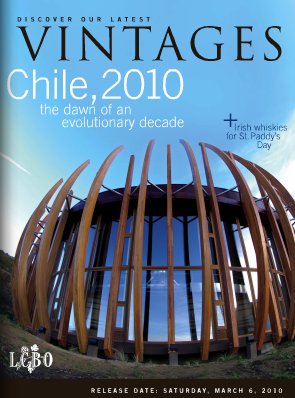Katherine Mangu-Ward on the prospect of Virginia selling off their state-owned liquor stores:
Virginia is one of 18 states where the government is the monopoly rumrunner. Supermarkets, gourmet shops, and corner stores are all forbidden to sell liquor. But Bob McDonnell, the newly-elected Republican governor, has promised to end the monopoly on liquor sales in the Old Dominion.
This bold gesture isn’t because McDonnell is an especially thoroughgoing libertarian; there are plenty of other areas where he’d like to see more state involvement in the private lives of citizens, not less. This isn’t a 12-step program to help the commonwealth go cold turkey on alcohol money either. McDonnell has no intention of letting Virginia’s bottle-based income fall below its current levels of more than $100 million a year. In fact, part of the reason McDonnell is considering privatization at all is that he is looking for cash to spend on transportation infrastructure. He predicts that selling off the state’s 334 liquor stores to private players and gathering licensing fees from more private sellers will bring in $500 million in the short run, while leaving long-run income intact. (The Washington Post remains unconvinced, noting that McDonnell’s figures may be too optimistic.)
But no matter what the political and budgetary machinations, Virginians are unlikely to wind up paying more for their rotgut, and they are very likely to wind up with a better selection and a relatively skeeze-free shopping experience. Commonwealth officials can focus on governing a large landmass without having to fuss with the details of running a liquor empire. And the move may even represent a net gain for the state budget in the future when the state sheds responsibility for ABC employee benefits and pensions, and starts bringing in real estate and other tax revenue from the privatized stores.
I’ve written about Ontario’s LCBO and the (dim) hopes of privatization at the old blog. In 2004, there was a brief flurry of discussion on privatizing the LCBO:
For those of you who don’t live in Ontario, the LCBO is the government-run monopoly provider of almost all alcoholic beverages except beer and wine, which are sold through the Brewers Retail, now operating under the name “The Beer Store” and through individual winery-owned wine stores, respectively. Both the LCBO and the Brewers Retail were set up after the repeal of prohibition in Ontario to control the sale and distribution of alcohol in the province. The LCBO is government-owned, while the Brewers Retail is owned by the major breweries (Labatt, Molson, & Sleeman).
A few elections ago, the Ontario government under Premier Mike Harris started talking about getting the government out of the liquor business. The LCBO, which up until that point had operated like a sluggish version of the Post Office, suddenly had plenty of incentive to try appealing to their customers. Until the threat of privatization, the LCBO was notorious for poor service, lousy retail practices, and surly staff. Until the 1980’s, many LCBO outlets were run exactly like a warehouse: you didn’t actually get to see what was for sale, you only had a grubby list of current stock from which to write down your selections on pick tickets, which were then (eventually) filled by the staff.
If the intent was to make buying a bottle of wine feel grubby, seamy, and uncomfortable, they were masters of the craft. No shopper freshly arrived from behind the Iron Curtain would fail to recognize the atmosphere in an old LCBO outlet.
During the 1980’s, most LCBO stores finally became self-service, which required some attempt by the staff to stock shelves, mop the floors, and generally behave a bit more like a normal retail operation. It took quite some time for the atmosphere to become any more congenial or welcoming, as the staff were all unionized and most had worked there for years under the old regime — you might almost say that they had to die off and be replaced by younger employees who didn’t remember the “good old days”.
To return to the early 1990’s, the LCBO had gone through massive changes (from their own point of view), but were still far behind the times. The threat of being sold to the private sector seems to have operated as a massive injection of adrenalin to the corporate heart: the LCBO suddenly became serious about serving the customer, expanding their services, making themselves more customer-friendly and providing their staff with proper training.
In the end, the Tory government decided that they preferred the direct stream of profits from the LCBO monopoly and backed away from their privatization plans. To my amazement (and probably that of most impartial observers), the LCBO did not immediately fall back into their bad old habits: they continued the modernization that had already taken them so far from their roots.
Today, the LCBO is almost unrecognizable as the Stalinist bureaucracy of the 1960s and 70s. Their staff are generally friendly, helpful, and (mirabile dictu) know far more about their products than ever before.
All that being said, I still am happy to hear that the current government is talking about privatization again. The LCBO is better than it used to be, and continues to improve, but they are still a monopoly provider with little real competition. I don’t pretend that a badly run sale might well end up (in the short-to-medium term) reducing the variety of alcoholic products for sale in Ontario, but having competing retailing channels would (in the long term) produce a healthier market with the competitors striving to attract more customers by better service, wider selection or even (dare we say it) lower prices.
Of course, 2005 came and went, with no movement in the direction of privatization, and it won’t happen under the current provincial government. The revenue stream is still too good for the province to give up.





